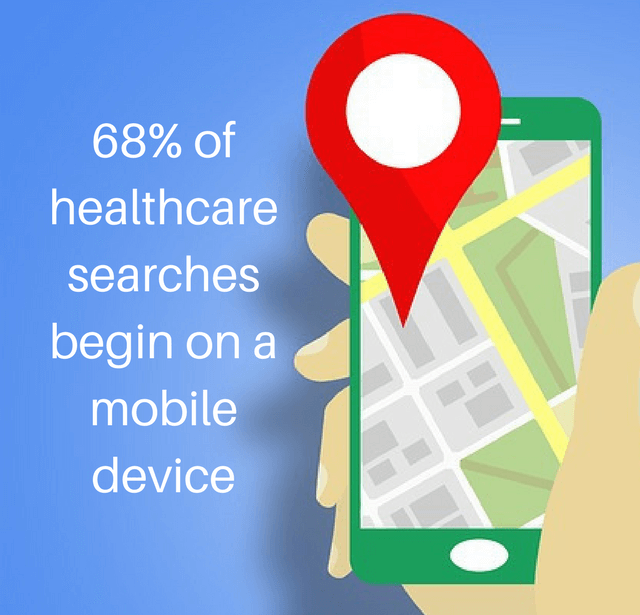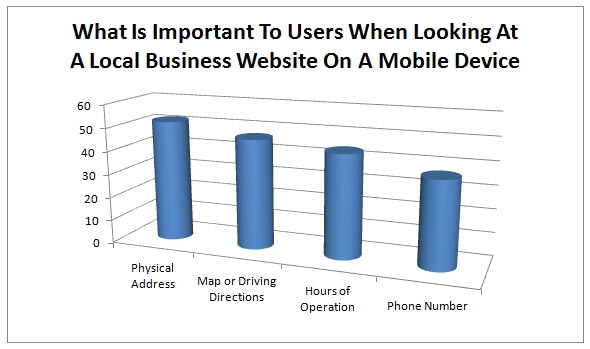It’s time for your annual physical again, but your primary care physician moved across the country and isn’t available anymore. How would you go about looking for a new one? If you’re like most of us, you’d turn to your computer or pick up your phone and start typing.
In fact, up to 77% of people start their search for health information at a search engine. What did you search for, though? If you entered something like “primary care doctors near me” and clicked on a link, you’ve just discovered the power of location landing pages.
A location landing page serves as an easy way for searchers to quickly find you using local SEO. It should provide basic details about your practice that allow prospective and current patients to locate essential information with minimal effort. These pages are useful for almost any business, but even more so for healthcare marketing. While you probably aren't concerned about how close an online retailer's headquarters are to your office or if they're open during your lunch break, these issues become much more important when you're scheduling an appointment for a checkup.
In fact, when it comes to doctors, these are all vital pieces of information that you would want to know before deciding to schedule an appointment. Healthcare facilities are somewhat unique in our digital world in the sense that virtually all of their clients enter a brick-and-mortar building. But if searchers can't find your practice, they certainly won't become patients.
What can you do to make your practice easy to find? Adding location pages to your existing healthcare content marketing strategy can help make sure searches end at your website and new patients find their way to your waiting room.
Mobile Users Should Play a Key Role in Content Marketing for Healthcare

It's not just that patients want to find you online – you also need to consider the technology they're using to learn about physicians and schedule appointments. Research shows that 68% of healthcare-related searches are initiated on a mobile device, which means that your content needs to be optimized for access via cell phones if you want to reach a majority of prospects.
What information is most important to mobile users? The top four most important details are a physical address, followed by a map or driving directions, hours of operation and phone number.

This means that mobile users are ready to engage and want to either contact you or visit your location. Providing your searchers with all of this information in a single, easy-to-reach location helps to eliminate a would-be road block, making it easier to transform a potential client into a paying patient.
Building Location Landing Pages That Deliver Results
Ready to get started with location pages? You'll need some basic information about your practice, and it's best to ensure that each page is comprehensive and complete when published. Nothing is more frustrating for searchers than realizing your page is missing a key element they need, whether it's your street address or the fax number for medical records.
A great location page should include all of the following:
- Your name, address and phone number (NAP): This might seem obvious, but failing to provide this simple information will probably result in an automatic “No” from searchers.
- Hours of operation: Everyone is busy, and potential patients need to know if they’re able to fit an appointment in your available hours into their schedule.
- A list of the major services provided at that location: Make sure readers know what you’re able to do for them before they call. If you’re able, include links to service-related landing pages to provide patients with additional information about procedures.
- An embedded map from Google, Yahoo or similar service: This makes it easy for people to visualize where you’re located and plan a driving route beforehand.
- A brief paragraph of unique content with relevant location-based keywords: This is an opportunity to highlight your qualifications and ties to the community.
- Testimonials: Social proof is a very powerful tool, and if you have a long history of satisfied patients, consider asking a few to provide a statement about how your practice has benefited them.
- Call to action (CTA): Make it as quick and easy as possible for someone to book an appointment. Add a link to your online scheduling tool if you use one, or make your phone number a clickable link, so mobile users can call you with a tap instead of manually entering the number.
If you're a solo practitioner working from a single location or a group practice with only one office, your work will be done with a single location page. But what if you're a large healthcare network with multiple locations across the city, state or country?
Be aware that it's not advisable to use a single landing page to list each location. This can make it confusing for patients that want to schedule an appointment at one office, but accidentally make one at a different location. Plus, consider mobile users – it can be difficult to scroll through an endless list of locations reduced to a smaller size on a cell phone's screen.
The good news? If you’ve made one location landing page, it’s not that difficult to customize it to suit another spot. Make sure all of the important details are updated, such as your NAP and hours of operation. You’ll also want to add a new paragraph with unique content suited to that spot. While it might be tempting to save time and simply cut and paste from one page to another, this can lead to your site being penalized by search engines for duplicate content.
While they may not be as engaging as blog posts or compelling as sponsored articles, location pages are sure to be the workhorse of your healthcare marketing strategy. And when you're just a click away from new clients, you'll find your schedule filling up faster than ever.
Not sure if you’re ready to commit to creating your own medical blogs or location landing pages? Our monthly content packages allow you to choose the volume of content that perfectly suits your needs. Contact us to find out more about how Virtucom Group can create the content you need to drive traffic and growth.






